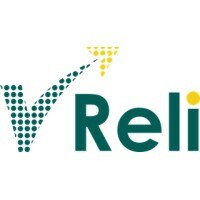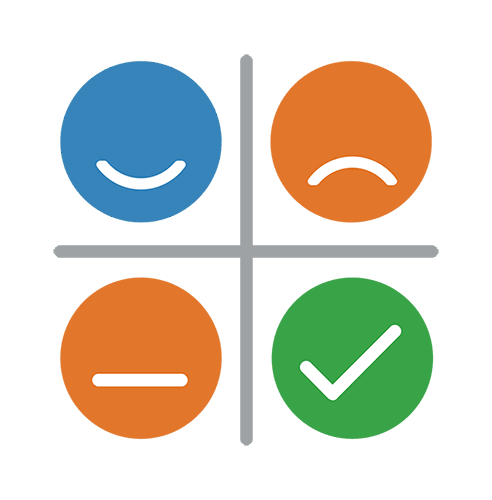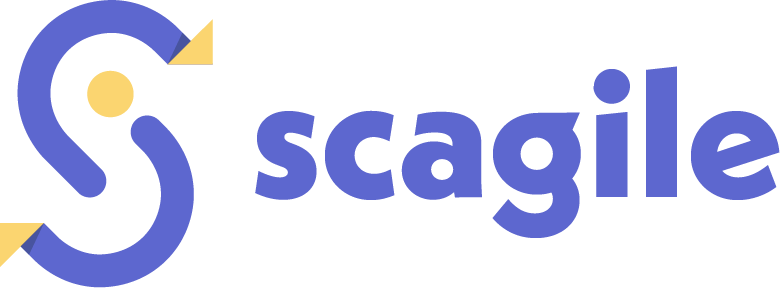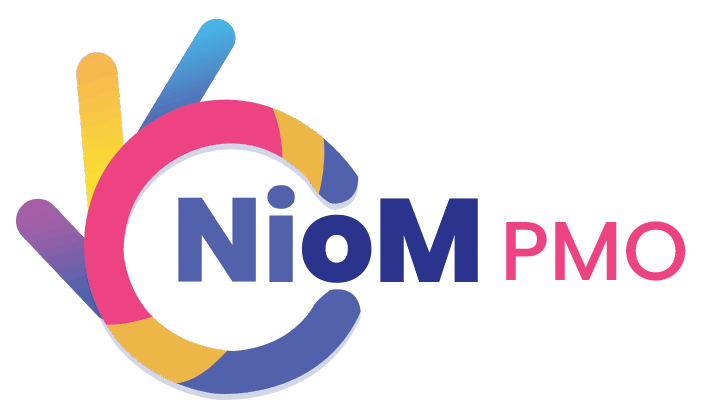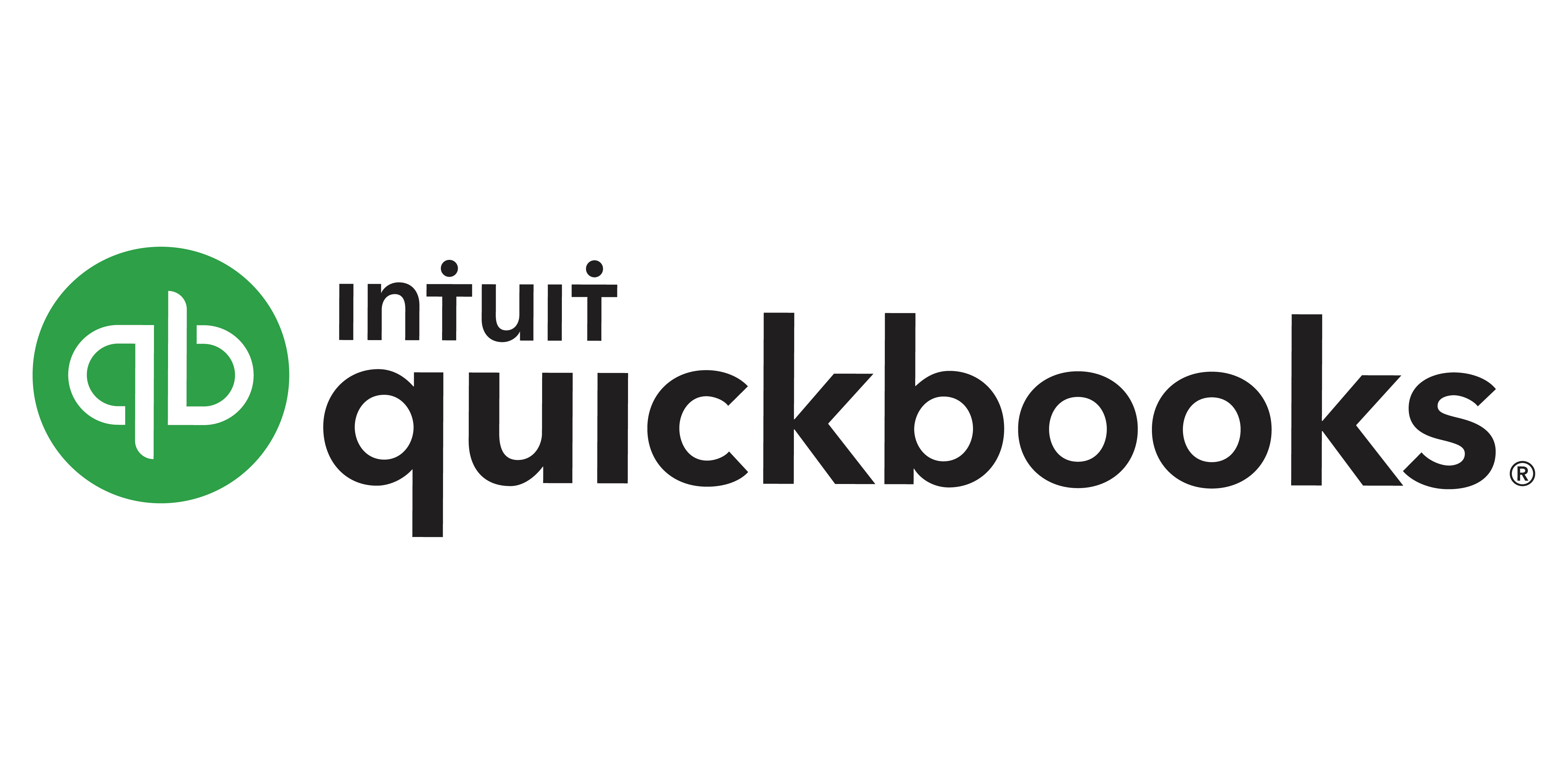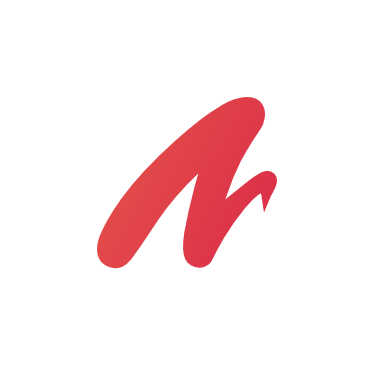Yes, most Agile project management tools can be accessed across multiple devices and platforms, including smartphones, tablets, laptops, and desktop computers. These tools are typically cloud-based, allowing for seamless access and collaboration from anywhere with an internet connection. Additionally, many tools have mobile apps that offer similar functionalities to the desktop version. This flexibility and accessibility make Agile project management tools a convenient and efficient choice for teams working remotely or on the go.
List of 20 Best Agile Project Management Tools
Nifty is a project management tool designed to enhance your teams productivity. Our software streamlines workflows, enabling seamless collaboration and efficient communication. With features like task consolidation, deadline tracking, and workload tr...Read More Nifty
TM4J, the leading test management solution for teams. With its seamless integration with Jira, advanced traceability features, and real-time insights, TM4J empowers teams to effectively plan, execute, and report on tests. Accelerate software quality...Read More TM4J
Projects.ly, created by 500apps, is time and project management tool designed specifically for SMBs. It enables smooth teamwork, efficient planning, and simplified monitoring of projects, resulting in increased business efficiency. Packed with a rang...Read More Projects.ly
VReli is aproject management solution designed to simplify and optimize your project workflows. With VReli, you can easily plan, track, and manage all your projects in one place. And the best part? Its completely free for Product Companies with less...Read More VReli
Lucidspark is an interactive online whiteboard that fuels creativity and promotes collaboration among teams. It offers cutting-edge capabilities for brainstorming, planning, and executing tasks with ease. This platform smoothly integrates with well-k...Read More Lucidspark
TeamRetro is a online platform tailored for agile teams, whether they are colocated, hybrid, or remote. Its interface is easy to navigate, and it offers guided techniques to optimize the effectiveness of retrospectives and team health check meetings...Read More TeamRetro
Simple Custom Reports is a project management solution for all methodologies, including kanban, scrum, and more. Seamlessly improve your teams progress and performance with our easy setup and powerful features. Take charge of your project management...Read More Simple Custom Reports
Claritee is a tool for creating wireframes and visual product specifications in just a few minutes. With collaborative features, teams can easily brainstorm and share ideas visually, boosting productivity and promoting efficient innovation. Say farew...Read More Claritee
Scagile - the premier agile project management solution specifically engineered for optimizing your organization, increasing productivity, and aligning with your corporate objectives. By leveraging value-focused workflows and effortless scalability,...Read More scagile
Cleeksy is a operational management solution designed to enhance team collaboration, streamline processes, and increase productivity. Our powerful platform integrates your team, breaks down barriers, standardizes procedures, and promotes cooperation...Read More Cleeksy
NioM PMO is aproject management solution for your organization. Our software leverages AI and agile practices to enhance developer efficiency and track hourly rates accurately. With automated features, NioM simplifies project management for seamless...Read More NioM PMO
QuickBooks Online, the premier accounting software for entrepreneurs and business owners. Streamline your financial management with its intuitive interface, top-notch security measures, and cutting-edge features such as Online bank connectivity and W...Read More QuickBooks Online
Shortcut is a solution for teams aiming to simplify their planning and development process. Seamlessly integrated with features like Issue Tracking, Sprint Planning, Roadmaps, Docs, and Goals, Shortcut empowers software teams to efficiently plan, bui...Read More Shortcut
Butterneck is a project management tool for optimal efficiency! With its innovative Kanban task board, personalized tracking, timesheet management, leave tracking, and document sharing capabilities, Butterneck simplifies and enhances your workflow. B...Read More Butterneck
Z-Stream solution for project management in businesses of all sizes. Our powerful tool simplifies task assignment, estimating, prioritizing, commenting, file attachments, and progress tracking for your team. No more confusion or delays - Z-Stream bri...Read More Z-Stream
Hygger is an essential solution for agile project management, offering a variety of prioritization tools. It provides a cost-effective approach, allowing for efficient feature development without excessive time or budget requirements. With Hygger, pr...Read More Hygger
Discover the power of Planbox, the innovative project management software powered by AI and hosted on the cloud. Get a taste of its capabilities with a free trial and benefit from top-notch customer support. Its user-friendly interface and seamless m...Read More Planbox
Favro is a online collaboration platform that revolutionizes team communication and workflow. Experience the power of task management, brainstorming, and project planning all in one place. Favro empowers remote teams to boost transparency and account...Read More Favro
Targetprocess is intuitive portfolio management solution perfect for enterprise teams. Its highly customizable interface facilitates seamless planning, tracking, and management of work across departments, eliminating silos and enhancing collaboration...Read More Targetprocess
Taiga is a project management solution. Say goodbye to learning curves and hello to streamlined processes for improved execution and impressive results. Keep your team organized and in sync from concept to completion with Taigas user-friendly platfor...Read More Taiga
Learn More About Agile Project Management Tools
- What Are Agile Project Management Tools?
- What Are the Recent Trends in Agile Project Management Tools?
- Benefits of Using Agile Project Management Tools
- Important Factors to Consider While Purchasing Agile Project Management Tools?
- What Are the Key Features to Look for in Agile Project Management Tools?
- Why Do Businesses Need Agile Project Management Tools?
- How Much Time Is Required to Implement Agile Project Management Tools?
- What Is the Level of Customization Available in Agile Project Management Tools?
- Which Industries Can Benefit the Most from Agile Project Management Tools?
- Conclusion
What Are Agile Project Management Tools?
Agile Project Management Tools are software solutions tailored to Agile project management approaches. These tools help teams and companies plan, track, and execute Agile initiatives. Agile project management is fundamentally about providing high-quality goods and services using incremental and iterative processes, collaboration, and continuous improvement.
Compared to typical project management approaches, this methodology offers better flexibility, adaptability, and faster delivery. Agile Project Management Tools offer teams a consolidated platform for managing all elements of their projects. They usually contain features like backlog management, sprint planning, task tracking, and team collaboration.
These technologies may also be integrated with other project management tools and communication platforms to help expedite operations and increase collaboration. One of the primary advantages of adopting Agile Project Management Tools is the ability to see project progress and identify obstacles in real time. This enables immediate modifications and prioritizing of jobs to guarantee timely delivery.
Furthermore, these technologies facilitate openness and open communication among team members, stakeholders, and clients. When researching Agile Project Management Tools, it is critical to seek for features that are compatible with your team's demands and objectives. Some systems include comprehensive reporting and analytics, while others focus on simple task management.
When making a selection, consider elements such as user friendliness, integration possibilities, and affordability. Overall, Agile Project Management Tools are successful solutions for helping teams and organizations manage their projects, enhance efficiency, and provide high-quality outcomes. With the proper tool, your team may reach its full potential and thrive in an ever-changing business environment.
What Are the Recent Trends in Agile Project Management Tools?
In today's fast-paced commercial environment, agile project management has grown in popularity. As a result, the number of agile project management solutions has increased, with the goal of assisting teams in streamlining workflows, efficiently collaborating, and delivering high-quality outcomes on time.
Some of the latest developments in the area of agile project management tools are:
1. Integration with third-party tools: One of the most important developments in agile project management solutions is third-party integration. Agile teams frequently utilize many technologies for different areas of their projects, therefore being able to combine these tools may dramatically increase their efficiency and productivity. This tendency has resulted in the growth of technologies that provide seamless interaction with popular programs such as Google Suite, Slack, and GitHub, among others.
2. Artificial Intelligence and Machine Learning: AI and ML technologies are being incorporated into agile project management solutions to provide advanced capabilities such as automated work scheduling, predictive analytics, and more. This tendency stems from the necessity for agile teams to tackle complicated tasks and make data-driven choices effectively. With AI and machine learning capabilities, these systems can analyze enormous volumes of data, detect trends, and deliver vital insights for improved project management.
3. Mobile accessibility: As organizations become more globalized, agile teams want technologies that can be accessible from anywhere and at any time. As a result, many agile project management solutions now support mobile devices, allowing team members to interact and keep up to speed on project progress even when on the road. This trend has proven critical for firms with distant personnel, allowing them to maintain consistent communication and productivity.
4. Real-time collaboration: Collaboration is a key component of agile project management, and solutions that enable real-time collaboration are becoming increasingly popular. These technologies enable team members to work on projects concurrently, making it simpler to discuss ideas, track progress, and handle difficulties swiftly. Such collaborative features not only increase productivity but also encourage openness and open communication among team members.
5. Emphasize user experience: Agile project management systems are emerging to focus user experience and offer a more straightforward interface. This tendency stems from the requirement for tools that may be quickly adopted and utilized by team members with diverse degrees of technical competence. solutions with an easy-to-use interface, simple navigation, and tailored processes are increasingly preferred over complex and difficult solutions.
Benefits of Using Agile Project Management Tools
Agile project management solutions have transformed how companies approach project management. These tools have several advantages, which can considerably increase project efficiency and success. In this buyer's guide, we'll look at the primary advantages of utilizing agile project management solutions and how they may benefit your firm.
1. Improved cooperation and Communication: One of the most significant advantages of utilizing agile project management solutions is increased cooperation and communication among team members. These technologies create a single platform for team members to discuss project updates, tasks, and timeframes, ensuring that everyone is on the same page and working toward the same objective.
2. Flexibility and Adaptability: Agile project management solutions are intended to be adaptable, allowing teams to react swiftly to changes and uncertainty. These technologies allow teams to regularly collect input and make required modifications, ensuring that the project stays on schedule and meets the changing demands of the business.
3. higher production and Efficiency: Agile project management technologies enable teams to operate more efficiently and effectively, resulting in higher production. These solutions automate procedures and reduce manual activities, allowing team members to devote more time to high-value work.
4. Real-Time Visibility and Transparency: Agile project management solutions provide real-time updates on project status, team workload, and any impediments. These technologies enable project managers and stakeholders to track and analyze project performance, make data-driven choices, and take remedial action as needed.
5. Improved Resource Management: Managing resources is critical to project success. Agile project management solutions enable teams to properly allocate resources, ensuring that work are equally divided and deadlines are met. This eventually improves resource utilization and lowers the risk of project delays.
6. Improved Risk Management: Using agile project management tools on a regular basis may assist reduce project risks by identifying and monitoring possible difficulties. These solutions enable proactive risk management by helping teams to detect and handle hazards before they worsen.
Important Factors to Consider While Purchasing Agile Project Management Tools?
When seeking to buy Agile project management tools, you should evaluate a variety of variables to ensure that you select the best decision for your team and company.
Below are some crucial aspects to consider before making a decision:
1. Team Size and Collaborative Needs: When choosing an Agile project management solution, you must examine your team's size and cooperation requirements. If you have a small workforce, a simple tool with minimal capabilities may be enough. However, if you have a larger team or need to collaborate with remote/external team members, a solution with strong collaboration features is required.
2. Usability and Learning Curve: The overall goal of utilizing Agile project management technologies is to streamline and simplify procedures. As a result, it is critical to select a tool that is simple to use and requires minimum learning. This will save time and money on training and onboarding your personnel.
3. Integration with existing tools: Consider the tools and platforms that your team already uses, and ensure that the Agile project management solution you select interfaces easily with them. This will prevent any delays to your workflow and ensure a seamless changeover.
4. Customization and Scalability: Every team and company has distinct requirements and processes. Look for a solution that can be tweaked and adapted to your unique needs. This will allow you to customize the tool to your team's workflow and future requirements.
5. Price and Budget: Agile project management solutions include a wide variety of cost choices, from free to expensive. To select the greatest match for your team, you should first examine your budget and compare the functionality and price of several solutions.
6. Support and updates: Technical faults and software upgrades are unavoidable, therefore you should carefully analyze the tool's support and update procedures. To guarantee seamless and uninterrupted use, choose a product that provides trustworthy customer support and frequent upgrades.
7. Security and Data Privacy: As with any program, security and data privacy are major issues. Make sure the tool you chose has strong security mechanisms in place to safeguard your team's data and information. By taking these elements into account, you can confidently select an Agile project management solution that will successfully support your team's Agile practices while also assisting you in meeting your project objectives.
What Are the Key Features to Look for in Agile Project Management Tools?
Agile project management solutions have become crucial in today's fast-paced and ever-changing corporate environment. As the agile method gained popularity, there was an inflow of such products on the market. With so many alternatives available, it might be difficult to choose the correct one. To make things easier for you, we've put up a list of critical characteristics to look for in agile project management solutions.
1. Agile Methodology Support: The first and most important characteristic to examine is the tool's compatibility with agile methodology. It should enable you to design and execute projects based on agile concepts like iterative development, continuous integration, and frequent feedback loops. Look for tools with functionality particular to agile frameworks such as Scrum, Kanban, or XP.
2. Project Visualization: Visibility and transparency are key to agile project management practices. Look for technologies that provide project visualization via dashboards, charts, and reports. These allow you to track the status of your project and discover bottlenecks or delays. In addition, the tool should provide real-time updates to keep your team on the same page.
3. Team Collaboration: Collaboration is the foundation of agile project management. The technology should offer a unified platform for team members to communicate, exchange ideas, and collaborate effortlessly. Real-time chat, file sharing, and task assignments are all useful aspects for ensuring efficient team cooperation.
4. Customization Options: Every project is unique, thus one size does not fit all. Look for tools with customization choices so you may adjust the tool to your project's exact demands. This may include the ability to create custom fields, processes, and integrate with other tools or applications.
5. Agile Metrics Tracking: To continually improve your agile process, you must track and measure critical metrics like as velocity, lead time, and cycle time. Look for solutions with built-in reporting and analytics to help you understand your team's performance and discover areas for growth.
6. User-Friendly Interface: The tool's interface should be simple to use and comprehend for both technical and non-technical users. A confusing or crowded UI may make it difficult for your staff to embrace the technology. Look for tools with a straightforward and intuitive design to provide a flawless experience.
7. Mobile and Remote use: In today's globalized and remote work environment, team members need to be able to use the project management application from anywhere and at any time. Look for products that provide mobile applications or online access so that your staff can stay connected and up to date even when they are not at work. 8. Security and Data Privacy: As data privacy becomes increasingly important, using a secure project management application is critical. Look for systems that include data encryption, frequent backups, and secure user authentication to safeguard your important project information.
Why Do Businesses Need Agile Project Management Tools?
Agile project management solutions have become indispensable for organizations of all sizes and sectors. With the quick speed of technical breakthroughs and business demands, traditional project management approaches are no longer viable for project success. In contrast, agile project management solutions give a flexible and iterative approach to project management, allowing firms to adapt and respond swiftly to changing requirements and client needs.
Here are the main reasons why firms want agile project management tools:
1. Increased efficiency and productivity: Agile project management technologies allow teams to collaborate and communicate more effectively, resulting in higher efficiency and productivity. These solutions provide real-time visibility into project progress, allowing teams to detect and fix difficulties promptly, resulting in timely project delivery.
2. Changeability: Traditional project management approaches rely on a strict plan that is difficult to adapt. Agile project management solutions, on the other hand, promote flexibility and adaptability, allowing firms to pivot and respond to changing market conditions and client needs more easily.
3. Improved risk management: Agile project management solutions integrate risk management into the project management workflow. With an emphasis on frequent iterations, teams may identify and eliminate risks early on, minimizing their total impact on the project and business.
4. Improved communication and collaboration: Effective communication and collaboration are critical to project success, and agile project management solutions provide the platforms and capabilities to make this possible. With consolidated communication channels and real-time project updates, teams can collaborate smoothly, resulting in better project outputs.
5. Customer satisfaction: In today's consumer-driven industry, firms must put customer pleasure first. Agile project management solutions encourage client engagement throughout the project, ensuring that the end results fit their expectations and requirements.
6. Cost-effective: Agile project management solutions save firms time and money by enhancing efficiency, productivity, and adaptability over time. Furthermore, these technologies lower the likelihood of project failure, preventing costly delays and rework.
How Much Time Is Required to Implement Agile Project Management Tools?
The time required to deploy agile project management tools varies based on a number of factors, including the organization's size and complexity, team members' expertise and buy-in, and the exact tools being introduced. The initial setup and configuration of agile project management systems can take anywhere from a few days to several months, depending on the project size and number of team members.
This involves duties like creating user accounts, establishing project schedules, and connecting with other systems. Once the tools are put up, it may take an additional 1-2 weeks for team members to become acquainted with the new procedures and software. This is critical for the successful implementation of agile project management technologies because it teaches team members how to utilize them effectively and promotes cooperation.
Furthermore, the implementation time required is determined by the organization's technique and strategy. For example, firms that adopt a more conventional approach may take longer to move to agile project management tools, whereas those who currently use agile methods may have a quicker implementation process.
Furthermore, continuing maintenance and upgrades may necessitate a few hours each month, but this might vary based on the individual tools and their capabilities. It's vital to highlight that the time necessary for implementation is determined not just by the tools, but also by the organization's willingness to try something new and accept change.
Communicating the benefits of agile project management technologies and involving team members in decision-making can assist to shorten total implementation time.
What Is the Level of Customization Available in Agile Project Management Tools?
The amount of customization offered by Agile Project Management Tools varies based on the tool and its capabilities. In general, most Agile solutions allow for extensive customization to meet the demands of various projects and teams. One of the most important aspects of Agile methodology is its adaptability, and project management solutions intended for Agile projects reflect this.
These tools allow customers to customize their project process, team responsibilities, and reporting metrics based on their own requirements. This implies that teams may tailor their project management method to fit their specific project goals and objectives. In terms of project workflow, Agile technologies often include a variety of project templates that may be adjusted and changed to meet unique project needs.
This includes the ability to add and delete stages, tasks, and user responsibilities to construct a custom process. In addition, many programs provide customization possibilities for adding user-defined fields, project statuses, and workflow rules. Most Agile systems also allow project managers to tailor team roles and permissions, giving team members unique access levels depending on their duties.
This degree of customisation guarantees that team members only have access to the information and functionality necessary to execute their duties properly. Agile solutions also allow for a great level of customization in terms of reporting and analytics. Users may generate customized reports and visual dashboards to monitor project progress, team performance, and other vital indicators.
This enables teams to monitor and analyze project data in real time, making it simpler to spot bottlenecks and make data-driven decisions that enhance project results. Finally, most Agile project management technologies allow for extensive customization to meet the specific requirements of various teams and projects. These technologies may be tailored to match the particular needs of every Agile project by customizing processes, roles, and reporting. When comparing tools, examine the amount of customization available to ensure it meets the demands of your project and team.
Which Industries Can Benefit the Most from Agile Project Management Tools?
Agile project management technologies are an essential component of modern project management, enabling teams to collaborate and work effectively toward project objectives. While these technologies can assist a variety of businesses, some are more suited to using them efficiently. In this tutorial, we'll look at which sectors may benefit most from agile project management solutions.
1. Information technology (IT): The IT sector is continually evolving, and projects frequently need rapid adaptability to shifting market trends and consumer demands. This makes agile project management systems ideal for IT teams. These technologies offer a versatile and adaptive framework for managing projects in a fast-paced context. IT teams can effortlessly manage complicated and time-sensitive projects by using capabilities such as work prioritizing, real-time communication, and progress monitoring.
2. Software Development: Software development is a complicated process that necessitates ongoing communication across many teams as well as the capacity to react to changing client requirements. Agile project management solutions enable software development teams to collaborate effectively, reduce procedures, and produce high-quality products. These technologies also enable continuous integration and testing, which is critical in the fast-paced and fiercely competitive software development sector.
3. Marketing & Advertising: The marketing and advertising industries rely heavily on fulfilling deadlines and delivering campaigns on time. Agile project management solutions enable teams manage projects in a methodical manner and stay on track with project deadlines. With capabilities such as team collaboration, job assignment, and progress monitoring, marketing and advertising teams can swiftly adjust to changes and fulfill tight project deadlines without sacrificing quality.
4. Healthcare: The healthcare business is continually developing, and projects frequently require many teams to work on different tasks at the same time. Healthcare teams may use agile project management solutions to quickly manage projects, allocate tasks, and communicate in real time, resulting in increased cooperation and efficiency. These solutions also help businesses satisfy tight regulatory requirements and manage complicated projects such as new product development or process improvement efforts.
5. Education: The education sector involves a variety of stakeholders, including instructors, students, and parents. Agile project management solutions may assist educational institutions manage projects more efficiently, allocate responsibilities, and interact with various stakeholders. These technologies also encourage teamwork and give a clear picture of project progress, making it easier for educators to evaluate their team's performance.
Conclusion
In today's fast-paced corporate environment, project managers want efficient and effective solutions to manage their projects. After conducting significant research and analysis, we have created a detailed buyer's guide for Agile Project Management Tools to assist you in making an informed selection. Agile project management solutions provide a flexible approach to project management that emphasizes ongoing communication, cooperation, and flexibility.
These technologies create a framework for managing complicated projects, making them accessible to both small and big teams. In this article, we've covered the important features to look for, such as task management, team communication, reporting, and integration. We've also emphasized the need of taking into account your team's demands and project objectives before choosing a solution.
Our top selections for Agile Project Management Tools are [Tool 1], [Tool 2], and [Tool 3]. Each of these tools has a distinct collection of capabilities and integrations, making them appropriate for a variety of project kinds and team sizes. In addition, we've included a full comparison chart to help you evaluate the features and cost of each product. Before making a selection, you must examine your budget as well as the worth of each instrument.
Overall, Agile Project Management Tools provide a solution for streamlining your project management process, improving team cooperation, and ensuring project success. We hope our buyer's guide has helped you make an informed selection. Choose the perfect tool for your project to boost your team's productivity to new heights.
Agile Project Management Tools FAQ's
Can Agile Project Management Tools Be Accessed Across Multiple Devices and Platforms?
Is Agile Project Management Tools Future-Proof and Adaptable to Emerging Technologies Like Ai, Blockchain or Iot?
Yes, Agile project management solutions are future-proof and extremely adaptable to upcoming technologies like as artificial intelligence, blockchain, and Internet of Things. The Agile technique is based on the ideas of adaptation and flexibility, making it ideal for incorporating new technologies as they emerge.
Furthermore, many Agile project management solutions are continually growing to suit the changing demands of organizations and project teams, making them a trustworthy alternative for managing projects in an ever-changing technological world.
.
Is There a Free Trial Offered to Assess Agile Project Management Tools Before Committing?
Yes, many Agile project management systems include a free trial period where users may test out their features and functions. This enables teams to test the tool's compatibility with their processes and evaluate whether it satisfies their specific project management requirements before making a commitment.
It is a fantastic opportunity to examine the tool's capabilities and make an educated choice on whether or not to purchase
vest in it.
Does Agile Project Management Tools Offer Data Security Features and Meet Regulatory Compliance Standards?
Yes, most Agile Project Management Tools provide data security measures that adhere to regulatory compliance norms. These solutions recognize the necessity of securing sensitive project data and follow security standards such as encryption and multi-factor authentication.
They also have built-in capabilities that assist teams in adhering to regulatory rules such as GDPR and HIPAA by offering data access restrictions, audit trails, and data backup choices. This guarantees that your project data is safe and compliant, providing you piece of mind while you manage your projects.
Can Agile Project Management Tools Integrate Seamlessly with Existing Tools and Platforms?
Yes, most Agile project management systems are designed to interface seamlessly with current tools and platforms. This enables teams to stay connected and collaborate smoothly across several systems.
Popular connectors include Jira and Trello for collaboration, Slack and Microsoft Teams for communication, and Google Drive and Microsoft Office for document sharing. These interfaces allow teams to streamline their project management procedures and increase efficiency.
.




